November 28, 2023
How to Stop Cats From Chewing Cords
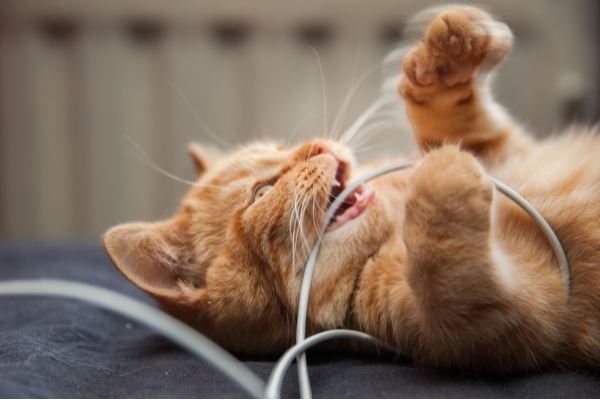

Curiosity killed the cat. It’s an old saying but it still holds true. If you have a cat or kitten chewing cords in your home, it’s only a matter of time until they get hurt. Luckily, our animal-loving electricians have some proven tips for how to stop cats from chewing on cords.
Cats make excellent pets. They’re happy living indoors, they clean themselves, they use a litter box without training, and they hunt unwanted pests! Unfortunately, our feline companions aren’t always purr-fect. A cat chewing on cords could be a sign of other issues. We’ll help you diagnose the motives behind your pet’s oral fixation and give you solutions to break the habit.
Why Is My Cat Chewing on Cords?
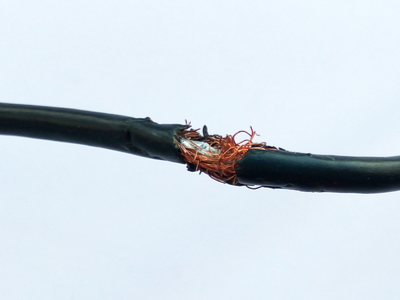

The reasons cats chew on cords can range from behavioral problems to dental issues to health afflictions. Here are the most likely reasons your cat chews on your cords:
Curiosity
Cats, especially kittens like the way it feels when they chew on a cord. They also have vivid imaginations. A cord hanging off the table may look like another animal’s tail or it might simply be a tactile issue they can’t resist.
Boredom
House cats without a lot of external stimulation available might see a dangling electrical cord as an exciting distraction. This might translate as a cat that chews on everything, not just electrical wires.
Dental issues
Young kittens that are teething tend to chew on anything and everything. An electrical cord may just be what’s convenient. Additionally, a good percentage of older cats experience dental problems. Chewing helps alleviate their discomfort.
OCD
If your cat exhibits behaviors like overgrooming, tail chasing and excessive licking, they may have an obsessive-compulsive disorder that compels them to chew.
Nutritional deficiency
Pica is the medical term for eating non-food items. Often, it is a result of a health problem or lack of nutrition.
Stress
If your cat is high strung, chewing may be the way it relieves inner tension and anxiety.
How To Keep Cats from Chewing on Cords
Whatever the reason is for your cat chewing on cords, it’s important to keep them safe. Here are six ways you can keep cats away from wires and avoid chewed up cords:
1. Wrap Exposed Wires in Rubber Covers
You can purchase rubber or plastic cord covers at most stores that sell electrical and home repair supplies. Not only do covers create a barrier against chewing, but they are also useful for organizing your cords and keeping them untangled. An electrician from Applewood can also help you install rubber covers.
2. Keep Your Cat Entertained
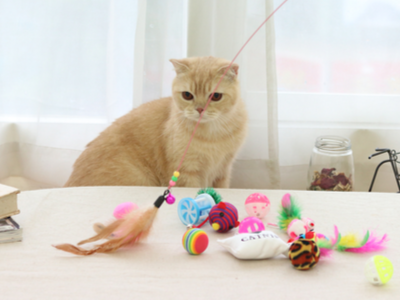

If your cat is bored, there’s a good chance they’re going to cause some type of mischief. Distract them by engaging their sensory needs: smell, taste, texture, and sound.
Replace their desire to chew on rubber cords by giving them something else to chew on like rubber chew toys, rawhide or even cardboard. Cat grass is another great alternative for heavy chewers.
Rotate your cat’s toy options so they don’t get tired of the same items day in and day out.
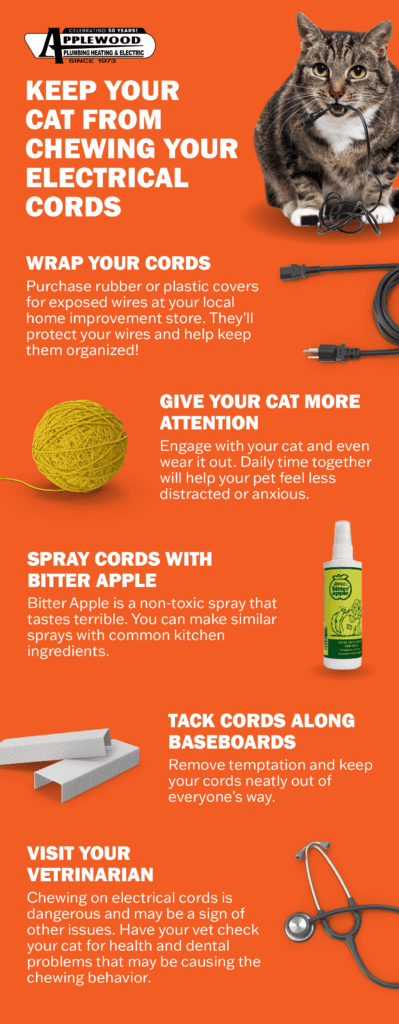

3. Give Your Cat More Attention
Increase your daily interaction with your cat to wear them out mentally and physically. Interactive food toys that require your cat to actively hunt for treats are an excellent alternative for cats chewing cords.
4. Spray Cords with Bitter Apple Spray
Cats have fewer taste buds than humans but they detect salty, sour and bitter. Because cats hate bitter and because their heightened sense of smell can detect it, bitter or spicy deterrents are effective. Apply a bit of store-bought apple spray to keep your cat from chewing on electrical cords.
5. Remove Access to Cords
Rearrange furniture to cover up cords or tack loose cords to baseboards. By removing the temptation of open dangling cords and limiting access, you might reduce your cat’s urge to chew.
6. Take Your Cat to the Vet for a Checkup
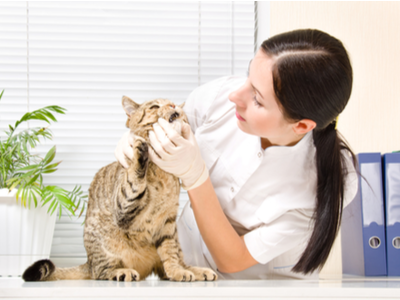

Because chewing on cords can be a sign of a health or dental problem, it’s important to take your cat in for a checkup. A vet will be able to assess your cat’s teeth, health and diet to ensure they’re getting the right nutrition and that they’re healthy.
If you notice signs of injury from electrical cords like burn marks around your cat’s mouth or excessive drooling, schedule a visit right away. Electrical shock can lead to significant issues like heart and lung damage or breathing trouble.
Electrical Repair for Feline Damage
Don’t let damaged or exposed wires and cords become a hazard in your home. If your cat keeps chewing on cords, try the steps above to remedy the problem.
Get fast and professional help with all your electrical needs. If you need help covering cords, replacing damaged wiring or with any other electrical issue get in touch with Applewood today! We’ll replace or redirect potentially dangerous wires to keep your home safe for two and four-legged family members alike!


